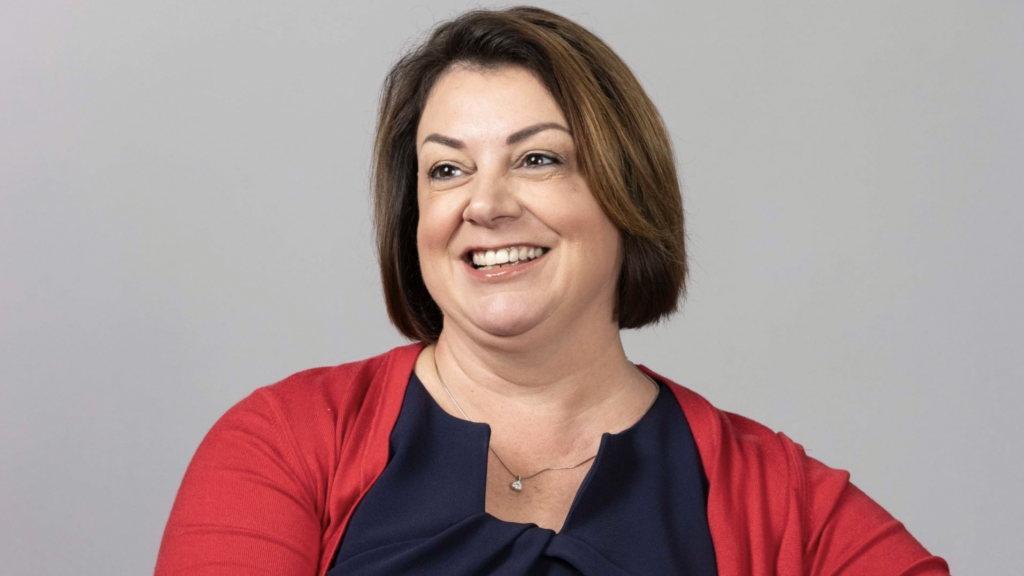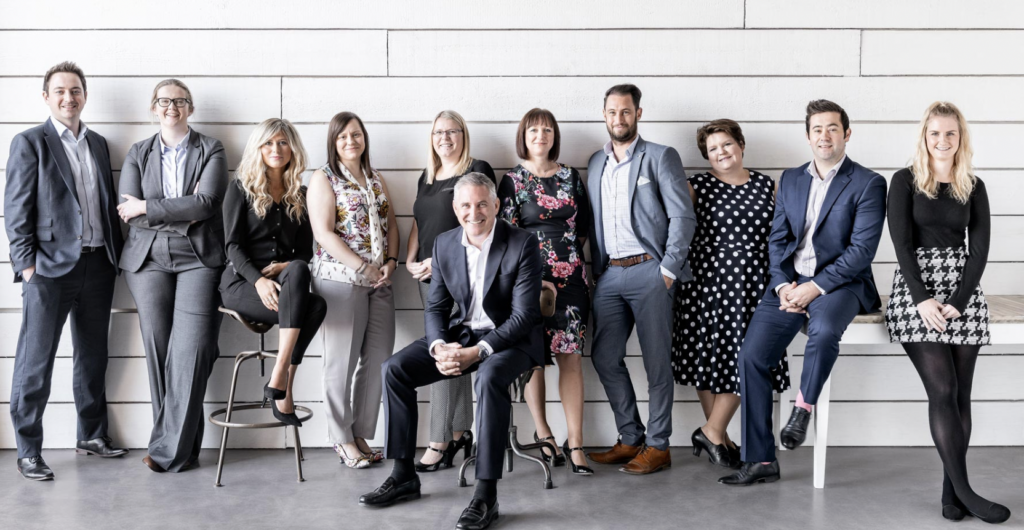
My sister and I were the first generation in our family to go to university. My mum worked in retail and my dad was in the RAF. They didn’t run businesses but they had a massively strong work ethic and they instilled that in me.
You went to school come what may. You were never allowed to stay at home wrapped in a blanket – to the point where I was once sick on my teacher’s desk. They taught me real accountability; you work hard all the time.
I chose law because of a lack of imagination. I used to read a lot when I was little and my parents asked, ‘Do you want to be a doctor or a lawyer?’ Those were the routes they saw for me. Well, I wasn’t keen on blood – or science for that matter.
The case came to me and I completed it in two weeks. The client was delighted and bought me a bottle of champagne.
I came across equity release as a trainee solicitor in the late nineties. I met a woman who wanted to release money from her home because she needed to have a back operation, which she wanted to do privately. She had instructed different lawyers but nothing had happened for six weeks. She was in pain and couldn’t understand the hold up. The case came to me and I completed it in two weeks. She was delighted and bought me a bottle of champagne. I’ve never forgotten it.
They want to enjoy their retirement
Equity release is a growth industry. We have a demographic with trillions locked up in housing. People don’t want to wait till they are 80 to give up work and pensions aren’t keeping pace with spending. The older generation wouldn’t have been receptive to taking out a mortgage later in life, but baby boomers are more tech savvy and are used to credit cards and mortgages. They want to enjoy their retirement.
I started thinking seriously about equity release after I moved to Cheltenham to join a mid-sized law firm called Rickerbys Solicitors. I was in the residential team with my now business partner, Simon David, who recruited me. We built a division within the firm gradually. First, it was just me and a secretary, then there were four of us and so on.
Then the recession hit in 2008 and we disbanded half our 20-something team and there were 11 of us left. The property market had collapsed.

Equilaw as a brand came to be in 2007. The law firm hived it off in 2008 and in 2010, my business partner and I went to the senior partner and threatened to resign. She said, what about Equilaw? She knew we were the only people who understood that side of the business. She said, ‘How about we do a deal?’
We agreed to do a management buyout and took all but two of the team. We’re now two linked law firms trading as Thomas Legal, a residential conveyancing group which my business partner runs, while I run Equilaw.
Concentrate on the fun stuff
BGF invested in us in 2019. They were excited about our disruption of conveyancing and equity release through automation. It’s less about law for them, they were backing our disruptive technology.
We have brought in nine in-house developers to develop a software system that relies on artificial intelligence to avoid people having to do lots of data entry and re-keying. We don’t want people’s jobs to be boring.
If you are a consumer and you want to take finance out from your house, you might speak to a financial adviser, then a lender, then another lender to compare the deal and so on. You’re having to do this time after time, explaining all the details over and over. We want to automate all of this, so they only have to explain it once.
That means that our people can concentrate on doing the fun stuff like law, business development, IT, management and so on – not administration. Across the two businesses, we employ nearly 140 and my business alone is 80.
Lack of imagination
The bit of my job I love the most is the thrill of the chase. I love doing deals and doing business, not just practising law. I got out of that part as soon as I could because it doesn’t suit my personality. I don’t want to sit at a desk solving those puzzles all day, I want to be creative and grow a business.
I don’t have any business qualifications. I’ve learned on the job. Sometimes, the hard way.
I was always good at English and, looking back, Law is a good degree to read because you learn about drafting and other practical applications. I learned a sense of pride in the quality of work I deliver, and learned about great customer service.
On a personal level I’m massively competitive and want to be the best. I will never deliver a product that’s substandard. That’s what I have tried to instil in the team here: make the client feel like they are the only person you care about, regardless how busy you are.
All your eggs in one basket
The hardest moment came in 2011. I remember like it was yesterday: we lost a big contract. The supplier wanted to go from a panel of law firms to one only. A more established law firm offered better financial inducements in terms of marketing spend and so on.
When we got the investment from BGF, I was able to do something for my parents. I knew they would say no so I just transferred some money into their account.
We were a start-up and only a year old. We didn’t have the resources to compete, so we lost the work overnight. I had to take a loan out to pay the VAT that quarter. I thought we would have to close the business down.
We realised then that you can’t put all your eggs in one basket. This is why we don’t just focus on big contracts but also the smaller introducers that bring three or four cases a month. You need those in case the big contracts fall away.
Strong work ethic
It’s funny because even though my parents weren’t entrepreneurial, my sister and I both are. My sister is an engineer by trade and works as the COO of a multinational company. She’s much more practical than me.
I hope my parents are proud of me now. The nice thing was that when we got money from BGF, I was able to do something for them. I knew they would say no so I just transferred some money into their account. They almost had heart failure. When they recovered from the shock, they bought a new caravan.
BGF and Equilaw
In 2019, BGF made a multi-million pound investment in both Equilaw and its linked law firm, Thomas Legal, to support business growth. As part of the deal, Tim Bittleston, a former CEO in the technology sector, joined the board of Equilaw as non-executive chairman.
How BGF Helped Equilaw
“BGF helped me find a great non-executive chairman in Tim Bittleston. They said, we’ll just make the introductions and you can pick one. Tim is just brilliant. He’s from a tech background and a really fascinating and fearless individual. Teaches people parachuting; does formation skydiving at 64. He’s all over everything and rings me every week without fail. If I had a problem on a Sunday he would take my call and help me without a second thought.”